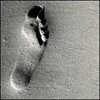From Athens to Auschwitz
Ch Meier
What does history mean today? What is its relevance to the modern world? In contemplating fundamental questions about history and the Western legacy, the noted classical historian Christian Meier offers a new interpretation on how we view the world. Meier sees an "absence" of history in contemporary Europe and throughout the West--an absence he attributes to the way modern historians have written about history and, more important, to the dramatic transformations of the twentieth century. He argues for the central legacy of Western civilization. He tackles the difficulty of reconciling a historical perspective with our era of extreme acceleration, when experience is shaped less by inheritance and legacy than by the novelty of changes wrought by science and globalization. Finally, Meier contemplates the enormity of the Holocaust, which he sees as a test of "understanding" history. If it is part of the whole arc of the Western legacy, how do we fit it with the rest? This engaging and thought-provoking meditation challenges us to rethink the role of history in Western culture and a changing world. Christian Meier, a prolific historian of the ancient world, here delivers a series of lectures on the perennial topic summed up in his subtitle...The two most rewarding chapters are the most specific, about the sources of the intellectual and artistic splendor that was classical Greece and the conditions of the equally incomparable horror that was the Holocaust. An America darkened by ignorant and bigoted religiosity cannot hear too often about the gloriously open-minded rationalists who launched Western civilization in fifth-century BC Athens. Meier draws on a lifetime of scholarship to put the miracle in context. And with proper tact and humility, he looks at his own country's all-too-recent shame, hoping to put it too in context. For that is what historians do; that is the use of history. --George Scialabba, Boston GlobeDuring the 20th century, Europe was reduced from its position of world dominance by a series of wars and political upheavals. According to Meier, Europeans lost more than its preeminence. In a series of six lectures covering topics from ancient Athens to Auschwitz, Meier argues that contemporary European society has lost its historical self-awareness, which presents a major problem as Europeans consider the expansion of the European Union (EU). Meier argues that the EU is the 'first political entity of the modern era that has no need for its own history and for a historical orientation.' One of the symptoms of this malady, Meier believes, is that it is not clear what kind of future Europe envisions for itself. Meier argues that one ingredient needed to correct this drift is the development of a Eurocentric history, distinct from previous ethnocentric notions, which acknowledges the uniqueness of what he refers to as the 'European miracle' and its impact on world history. --Frederic Krome, Library Journaln discussing Auschwitz, Meier argues that it must be understood as part of history, not as an inexplicable and unfathomable event, and that history is not the record of inevitable progress, at least not moral progress. --Eugene Larson, Christian Meier has written a challenging, provocative, and timely book. It is a pleasure to observe this eminent ancient historian think through and struggle with the grand questions of European and Western history. --Michael E. Geyer, University of ChicagoA daring book, wise and unpedantically learned. Meier's main concern is with Europe's 'special path,' how and why its civilization (and that of its offspring, the United States) came to dominate the world, beginning in the fifteenth century. He analyzes the elements shaping the historic process and reflects searchingly on why in some symbolic but not precise sense Auschwitz marks the end of the special path. The spirit of Jacob Burckhardt pervades this suggestive historical and philosophical meditation. --Fritz Stern, Columbia University,Emeritus
więcej
Informacje dodatkowe o From Athens to Auschwitz:
Wydawnictwo: angielskie
Data wydania: b.d
Kategoria: Socjologia, filozofia
ISBN:
Liczba stron: 0
Kup książkę From Athens to Auschwitz
Sprawdzam ceny dla ciebie ...
Cytaty z książki
REKLAMA

















Chcę przeczytać,